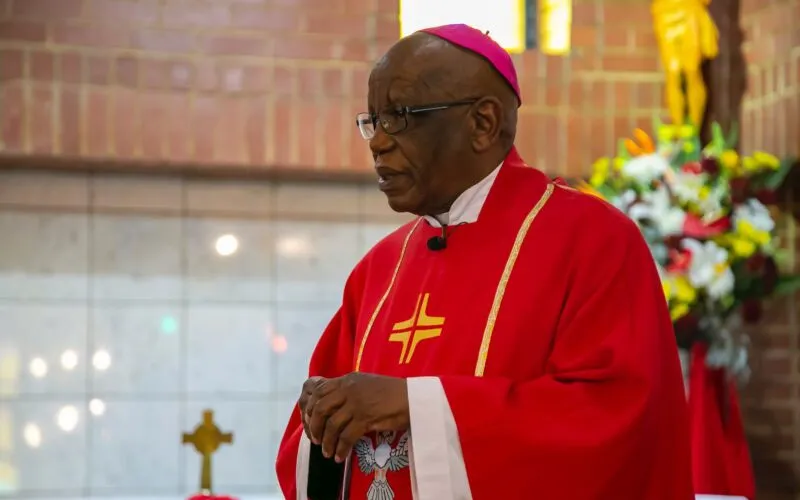He continued, “Deacons are to proclaim the Gospel of Christ, the plan of God's salvation not only in words but by example and personal testimony.”
In his address during the August 20 AGM that was held at Don Bosco Youth Centre Wakerville, Johannesburg Archdiocese, the South African Archbishop called on Permanent Deacons in his Metropolitan See to be of service to all members of “the whole Church”.
“Deacons are pressed upon to serve the whole Church, to serve orphans, to visit the sick by bringing them the Eucharist and to care for the needy and the poor,” said the member of the Missionary Oblates of Mary Immaculate (OMI).
Permanent Deacons need to “take care of migrants and refugees, to perform works of charity thereby becoming witnesses of Christ,” he said, and urged them to provide a “healing ministry” to victims of gender-based violence (GBV).
The 74-year-old Archbishop who started his Episcopal Ministry in April 1999 as Archbishop of South Africa’s Bloemfontein Archdiocese explained, “Domestic violence has become a common occurrence, no, a common curse. What needs to be arrested is the frightening, brutal spectacle of femicide, a definite indicator of a sickening moral depravity of some menfolk.”
“When such incidents happen, families and communities find themselves at the crossroads. Intense feelings of revenge abound. Families are left with anger, frustration and deep scars,” he went on to say, and added, “A sorely needed ministry of healing could be provided by Deacons as well.”
The South African Church leader urged Permanent Deacons to “embrace works of charity with enthusiasm and to work in a coordinated manner with other existing charitable groups to better serve the poor and the marginalized” in their ministry.
“The Office of the Deacon is nothing other than the ministry of Jesus Christ. Deacons are ministers of the mysteries of Jesus Christ. Deacons are ministers of the Church of God,” Archbishop Tlhagale said, citing Pope Paul VI’s Apostolic letter establishing the new norms for the Order of Deacon, Ad Pascendum.
“The Pope also draws attention to the teaching that deacons should behave in such a way that, if your ministry obliges you to lay down your lives for a brother, you should do so,” he said, adding that Deacons should be ready to sacrifice “because we are the imitators of Christ who suffered and died for us all”.
In his address, the Local Ordinary of Johannesburg Archdiocese told Permanent Deacons to serve the faithful at the Parish and Diocese levels.








